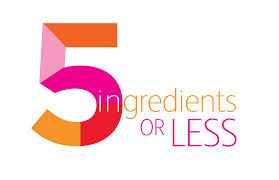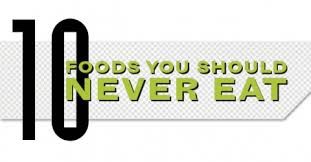Perfectionism
Is the "Clean Eating" Movement a Form of Perfectionism?
Perfectionism: the new fad diet.
Posted October 6, 2014

Imagine your roof has a leak that could cause damage to your home. You want to repair it but it will take a lot of effort. You believe the house would also be improved with a coat of paint, new kitchen tiles, and a finished basement. You decide to start on all of these projects because you want the house to be perfect. After 6 months you’re exhausted by all the work and you haven’t accomplished any of the projects. In the meantime, the leak in the roof has done increasing damage. You’re frustrated and give up on home repair altogether.
This is an analogy to what I see happening to people trying to lose weight in the new age of “whole
food” eating. The blogosphere is ablaze with whole food evangelists making lists of foods we should and shouldn’t eat because they are processed or they contain GMOs, preservatives, have ingredients we can’t pronounce, colorings, flavorings, you name it. We were once concerned about calories, fat and sugar, but now we have an infinite list of ingredients to put on the radar. We have turned the task of weight loss into something far more difficult, anxiety provoking, and time consuming. I now have to feel guilty eating a can of tomato soup for lunch. Instead, I have to whirl fresh grown tomatoes in the blender with no more than 4 other ingredients or I have broken some “whole food” law that someone selling a book pretty much just made up….to sell books.

The focus on "clean eating" and "whole foods" has a perfectionistic, black-and-white feel to it. Food is now categorized as either "clean" or "unclean." Perfectionism generates anxiety and demoralization because it sets an unattainable goal. The perfectionistic dieter feels failure every time she eats something "unclean." The process of weight loss already generates anxiety and demoralization for many people, so taking a perfectionistic approach is likely to be highly counterproductive.

The kicker is that many ingredients we are told to worry about (the "uncleans") have no influence whatsoever on weight. In fact, not a single study shows that a “whole food” diet results in weight loss or prevents diabetes or heart disease. By focusing on multiple tasks it's harder to make progress on your goal of weight loss. Added sugars and fats are really the only “processed” ingredients that we know for sure influence weight, and it’s largely because they add calories and increase appetite.
The best weight loss diet is the one you can stick to. Quite honestly, that might not be the diet with the kale smoothies. Keep in mind: the fewer behaviors you try to change, the easier change will be. For the biggest health impact, prioritize the changes most likely to impact your weight—calories (especially those from fat and sugar). Once you have lost some weight, then consider taking on other dietary goals.
In other words, if you are worried about the value of your home, get your roof fixed. The new kitchen floor can wait.


